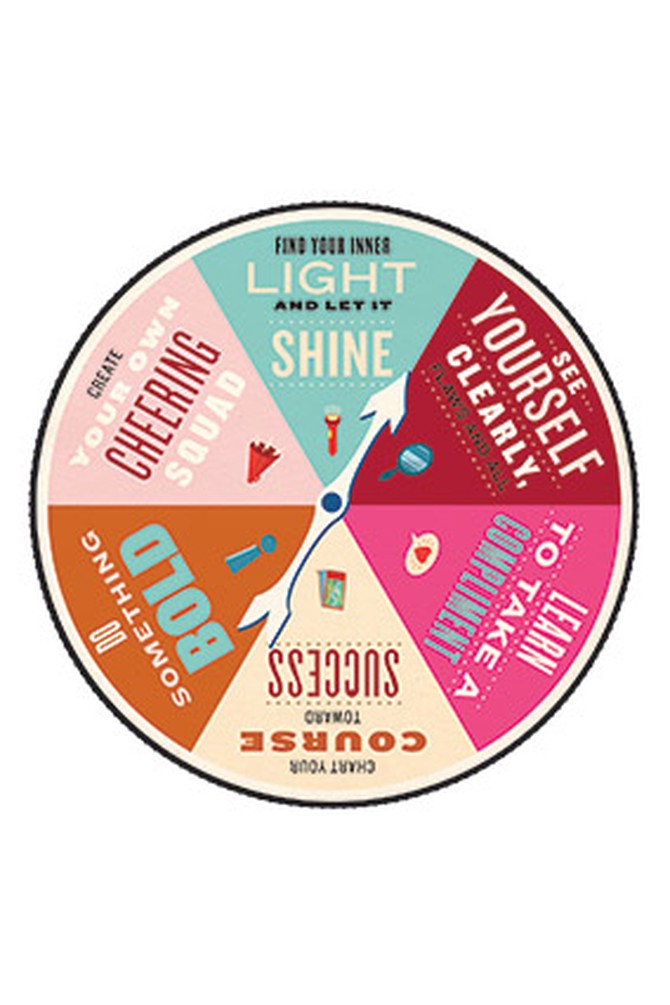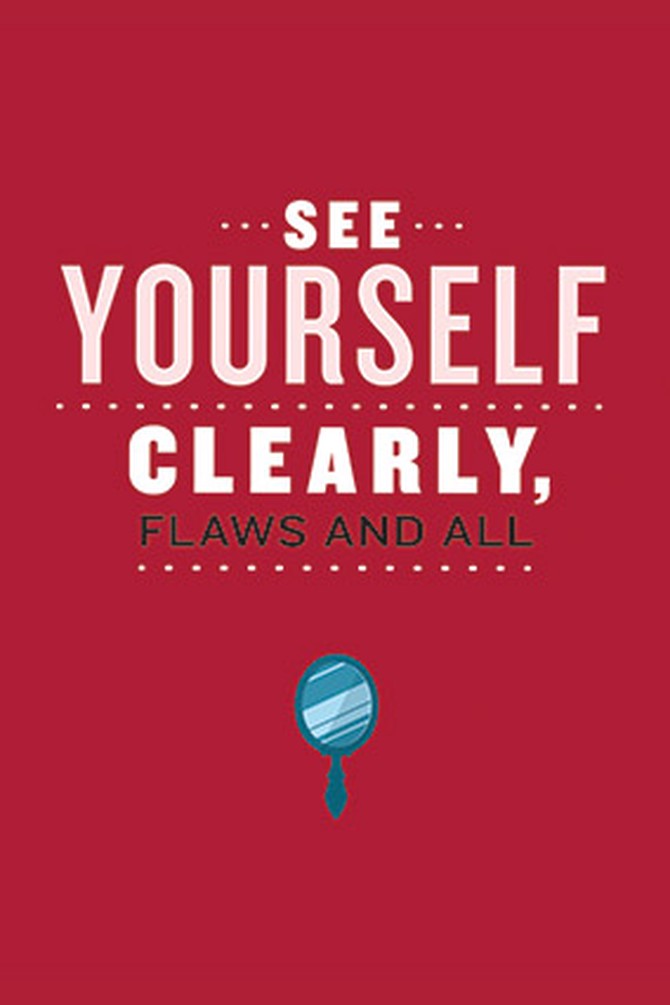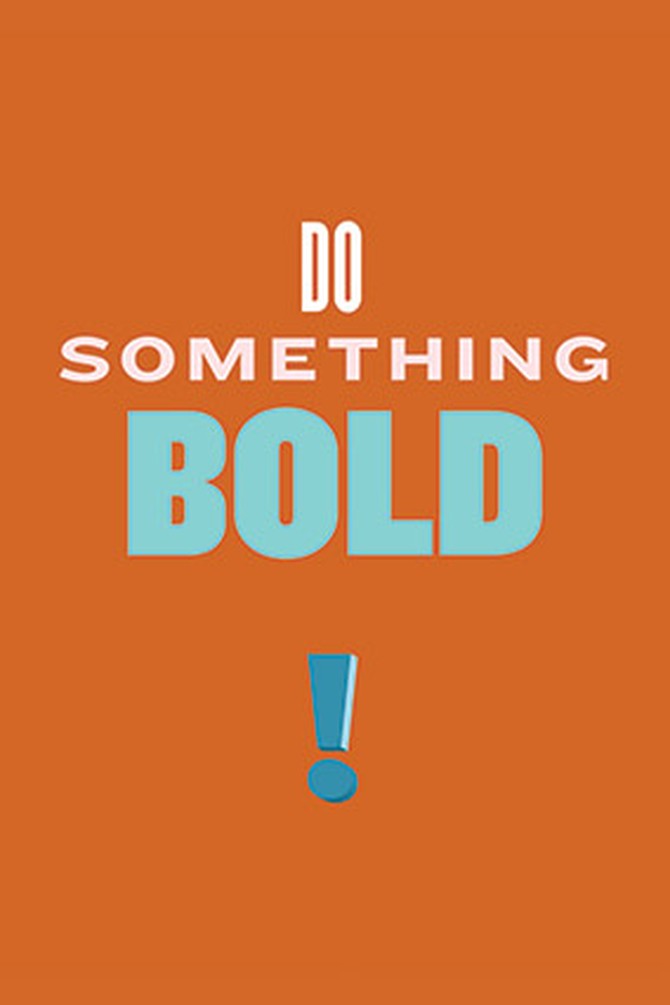Dr. Phil: 6 Steps to Self-Assurance
Dr. Phil points you in the direction of a deeper, stronger faith in yourself.
By Dr. Phil McGraw

Illustration: I Love Dust
Few of us feel totally invincible all the time—including me. If you throw me into a social setting where I'm forced to make small talk, my normally solid self-assurance can waver. Fortunately, confidence doesn't come in fixed quantities. And if you're brimming with it in one part of your life, you're well positioned to boost it in others.
Follow these strategies to expand the confidence you've got into something even greater.
Follow these strategies to expand the confidence you've got into something even greater.

Illustration: I Love Dust
It's human nature to think negatively. Studies show that negative thoughts and emotions are quicker to form, attract more of our focus, and are more likely to be recalled than positive ones. Confident people aren't immune to pessimistic self-talk, but they also recognize and value their strengths—and you should, too. If you have trouble pinpointing your positive attributes, start by thinking about one trait that has served you well in life. (Perhaps your perseverance helped you land your job.) Then get your loved ones involved. Try this approach:
1. Open with telling them what you like most about yourself.
Your perspective will provide a jumping-off point for your loved ones—and help them brainstorm their favorite things about you.
2. Prepare to be surprised.
You might think your calm demeanor is your strongest attribute, but others may value your spontaneity.
3. Ask your loved ones for more details.
Encourage them to cite specific examples of your most appealing traits in action.
4. Once you identify your best qualities, share them.
The more you project your strengths, the more powerful they can become. By repeatedly putting yourself in a position where you feel you're at your best, you build trust in your abilities and assets.
1. Open with telling them what you like most about yourself.
Your perspective will provide a jumping-off point for your loved ones—and help them brainstorm their favorite things about you.
2. Prepare to be surprised.
You might think your calm demeanor is your strongest attribute, but others may value your spontaneity.
3. Ask your loved ones for more details.
Encourage them to cite specific examples of your most appealing traits in action.
4. Once you identify your best qualities, share them.
The more you project your strengths, the more powerful they can become. By repeatedly putting yourself in a position where you feel you're at your best, you build trust in your abilities and assets.

Illustration: I Love Dust
Know thyself.
Once you're aware of your strengths, you need to identify your weaknesses—and with good reason. The mere fact that we understand who we are, for better or for worse, has been found to improve self-esteem. Though it's in our nature to self-criticize, we also sometimes lie to ourselves about our talents, the real price of certain less-than-ideal aspects of our lives, and our true character traits. Facing your flaws means looking at patterns in your life. Are you often accused of, say, stubbornness, indecision, or hot-temperedness? Do you end up in the same old conflicts with partners, friends, or coworkers? Figure out how you're contributing to those situations, and you'll likely identify what traits you need to address.
Hiding the truth requires a lot of energy.
It can be emotionally, spiritually, and even physically taxing to convince yourself an issue doesn't exist or will resolve itself on its own. Think back to when you were a kid playing in a swimming pool and you tried to hold a beach ball underwater. You'd get worn out pushing the ball down as its buoyancy forced it to the surface. Likewise, any imperfection you try to hide—whether it's a character flaw or a part of your past you'd rather not acknowledge—will most likely pop up again. Confidence takes commitment. You can't spend 50 percent of your time projecting your best assets and 50 percent obscuring the truth and still expect to strengthen your self-esteem.
Once you're aware of your strengths, you need to identify your weaknesses—and with good reason. The mere fact that we understand who we are, for better or for worse, has been found to improve self-esteem. Though it's in our nature to self-criticize, we also sometimes lie to ourselves about our talents, the real price of certain less-than-ideal aspects of our lives, and our true character traits. Facing your flaws means looking at patterns in your life. Are you often accused of, say, stubbornness, indecision, or hot-temperedness? Do you end up in the same old conflicts with partners, friends, or coworkers? Figure out how you're contributing to those situations, and you'll likely identify what traits you need to address.
Hiding the truth requires a lot of energy.
It can be emotionally, spiritually, and even physically taxing to convince yourself an issue doesn't exist or will resolve itself on its own. Think back to when you were a kid playing in a swimming pool and you tried to hold a beach ball underwater. You'd get worn out pushing the ball down as its buoyancy forced it to the surface. Likewise, any imperfection you try to hide—whether it's a character flaw or a part of your past you'd rather not acknowledge—will most likely pop up again. Confidence takes commitment. You can't spend 50 percent of your time projecting your best assets and 50 percent obscuring the truth and still expect to strengthen your self-esteem.

Illustration: I Love Dust
It always drives me crazy when someone comes up with a brilliant idea or does a great job on a project—then discounts any acknowledgment of her achievement by saying, "Oh, it was nothing." It wasn't nothing! And if you act like you don't deserve praise, then who are other people to disagree with you?
Your confidence can be affected by the way that people you respect salute who you are and what you do. (There's a reason we call it "a vote of confidence" when others give us a pat on the back.) I'm not suggesting you let everyone else determine how you feel about yourself, but it sure doesn't hurt if someone you care about thinks you have a commendable trait. Being able to receive constructive, positive feedback can help counteract negative thoughts and build confidence. Besides, if you respect someone enough to take their criticism to heart, it's only fair to also accept their praise. If you can't stop yourself from brushing off compliments, practice saying this in front of your bathroom mirror:
"Thanks. I appreciate your saying that. I worked really hard, and the fact that you noticed means a lot."
Your confidence can be affected by the way that people you respect salute who you are and what you do. (There's a reason we call it "a vote of confidence" when others give us a pat on the back.) I'm not suggesting you let everyone else determine how you feel about yourself, but it sure doesn't hurt if someone you care about thinks you have a commendable trait. Being able to receive constructive, positive feedback can help counteract negative thoughts and build confidence. Besides, if you respect someone enough to take their criticism to heart, it's only fair to also accept their praise. If you can't stop yourself from brushing off compliments, practice saying this in front of your bathroom mirror:
"Thanks. I appreciate your saying that. I worked really hard, and the fact that you noticed means a lot."

Illustration: I Love Dust
When you don't know where you're going, it's easy to question yourself and what lies ahead. That's a surefire way to derail your confidence, because most of us are linear thinkers: We travel from A to Z, taking comfort that if we're standing on corner C, we can see D ahead and know that E is just up the road. The human psyche likes a map, and we often get emotionally lost if we don't have one.
Whatever your objective, you must define it, create a plan for achieving it, and set up a timeline for its completion in small, measurable steps. Charting these achievements can boost self-esteem as much as attaining your ultimate goal, because, to put it simply, a success is a success, and the more of them you have, the more favorably you're likely to view yourself. When you take deliberate measures toward a goal, you'll have the fortitude to think—and do—big.
Whatever your objective, you must define it, create a plan for achieving it, and set up a timeline for its completion in small, measurable steps. Charting these achievements can boost self-esteem as much as attaining your ultimate goal, because, to put it simply, a success is a success, and the more of them you have, the more favorably you're likely to view yourself. When you take deliberate measures toward a goal, you'll have the fortitude to think—and do—big.
- Define your destination.
- Draw a map from here to there.
- Set up a timeline for arrival.

Illustration: I Love Dust
Let's say you're a decent cook, but you don't venture beyond making quick meals for your family. Now, what if you were to invite friends over for an elaborate, six-course dinner? Sure, you've never done that before, but you wouldn't be starting from scratch; you'd be building on skills you already have—taking what I call a reasonable risk. Controlled leaps of faith give us a chance to feel proud of ourselves for having the guts to try something new.
Keep in mind...
Taking reasonable risks sets us up for success not just once but repeatedly. No matter the outcome (maybe one of your dishes didn't turn out as expected), the attempt itself represents an accomplishment that can be built upon. Next time you'll aim even higher, think even bigger—and before long making bold moves will start to feel like second nature.
We set out on adventures as children not only to express our independence but also to understand our capabilities. We have the opportunity to take a similar approach as adults. You've heard me say that the only person you control is you. By reaching, stretching, and trying new things, you'll expand your life experiences and, in turn, your confidence.
Keep in mind...
Taking reasonable risks sets us up for success not just once but repeatedly. No matter the outcome (maybe one of your dishes didn't turn out as expected), the attempt itself represents an accomplishment that can be built upon. Next time you'll aim even higher, think even bigger—and before long making bold moves will start to feel like second nature.
We set out on adventures as children not only to express our independence but also to understand our capabilities. We have the opportunity to take a similar approach as adults. You've heard me say that the only person you control is you. By reaching, stretching, and trying new things, you'll expand your life experiences and, in turn, your confidence.

Illustration: I Love Dust
Having a passionate group of supporters fosters a sense of belonging, which can translate to a feeling of security—something that helps us build confidence. I'm not saying you can't be self-assured if you usually think of yourself as a lone ranger. But there is often strength in numbers, and identifying the right people to root for you can make a significant difference in the way you approach challenges. Athletes competing in high-pressure situations gain a measurable confidence boost from being cheered on by their peers; it can literally help propel them to victory, according to researchers. It's important for you to feel just as encouraged as you go through life.
But finding the right allies is a little like picking out a perfect mate: Sometimes you can spot a keeper right away; most of the time, you stumble upon one through trial and error. To focus your search, consider these questions when you meet someone new:
Dr. Phil's latest book is Life Code: The New Rules for Winning in the Real World (Bird Street).
Next: Dr. Phil's 6 rules of communication
But finding the right allies is a little like picking out a perfect mate: Sometimes you can spot a keeper right away; most of the time, you stumble upon one through trial and error. To focus your search, consider these questions when you meet someone new:
- Do I feel a real connection to this person?
- Am I comfortable opening up to her?
- Has she ever said anything that would make me doubt myself?
Dr. Phil's latest book is Life Code: The New Rules for Winning in the Real World (Bird Street).
Next: Dr. Phil's 6 rules of communication
From the April 2013 issue of O, The Oprah Magazine

